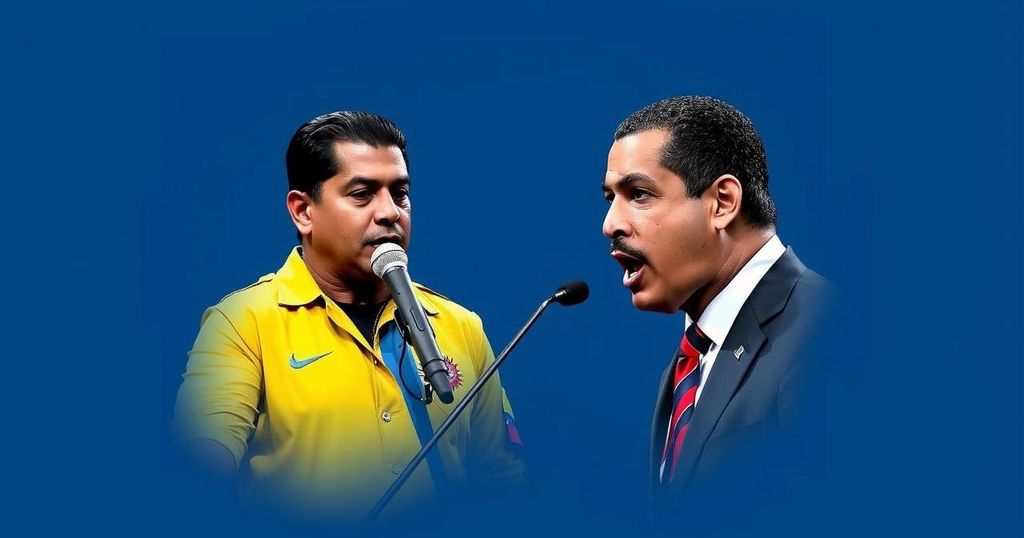The Biden administration has imposed sanctions on 21 Venezuelan officials linked to President Maduro, following a disputed election. These sanctions target senior government figures accused of repression. Despite sanctions, Maduro’s grips on power remain strong, prompting criticisms over their effectiveness. Concurrently, Venezuela’s government advances legislation to classify international sanctions as crimes against humanity.
On Wednesday, the Biden administration announced sanctions against 21 Venezuelan officials who are affiliated with President Nicolás Maduro, following the controversial presidential election held in July. The sanctions, enacted by the Department of the Treasury, target senior figures in Venezuela’s government, including high-ranking officials in corrections and intelligence, whom the administration accuses of acting repressively in response to the unrest following the election results.
This recent action adds to a growing list of sanctions against Maduro’s regime, which has seen prior penalties imposed on key figures such as high court leaders and other government officials for their roles in electoral misconduct and human rights violations. While the effectiveness of such sanctions remains in question, with many of those targeted still firmly entrenched in positions of power, Acting Under Secretary Bradley T. Smith emphasized the administration’s commitment to confronting actions that threaten democratic principles.
Earlier sanctions were also implemented against 16 other high-ranking officials just two months prior, indicating a systematic approach by the U.S. to isolate and penalize Maduro’s loyalists. Despite these efforts, criticisms persist regarding the ability of sanctions to induce political change, as Maduro’s government continues to maintain substantial control. In retaliation, the Venezuelan government is advancing legislation that may classify international sanctions as crimes, thereby allowing for potential legal repercussions against proponents of such measures.
The context surrounding these sanctions is critical, particularly as the Biden administration recently recognized opposition candidate Edmundo González as the legitimate victor of the disputed election, a claim Maduro vehemently contests while refusing to disclose official electoral results. Following these events, widespread protests have erupted across Venezuela, with demonstrators calling for transparency in the election process and the release of specific polling data to substantiate claims of electoral fraud.
The Venezuelan political landscape has been fraught with turmoil following a disputed presidential election in July, where Nicolás Maduro’s government faced allegations of electoral fraud and repression against opposition voices. The United States has historically employed sanctions as a strategic tool to counteract actions by the Maduro administration that undermine democratic governance and human rights. Such measures have intensified following the recent election, due to a significant backlash from supporters of democracy and civil liberties in Venezuela.
In summary, the Biden administration’s recent sanctions against Venezuelan officials serve as part of a broader strategy to address the ongoing political crisis in Venezuela. Despite the implementation of these punitive measures, the regime remains largely intact, leading to ongoing debates over the efficacy of such tactics. Meanwhile, the Venezuelan government is taking steps to counteract these sanctions, raising significant legal and political questions regarding international intervention and domestic governance in Venezuela.
Original Source: www.newsweek.com






